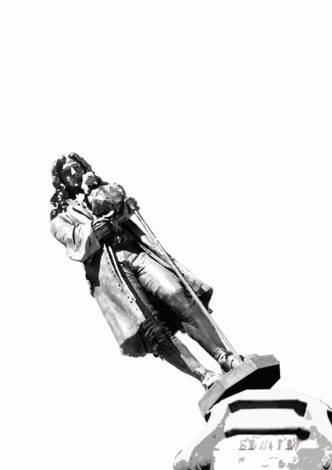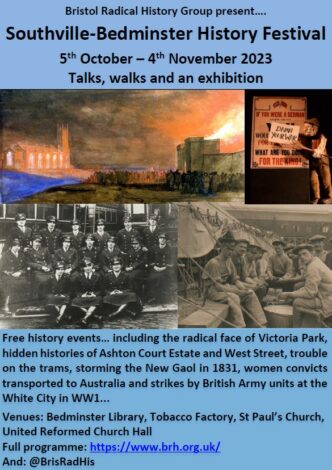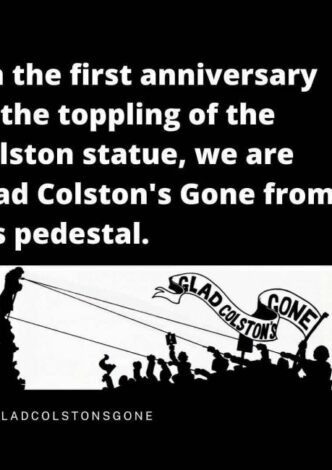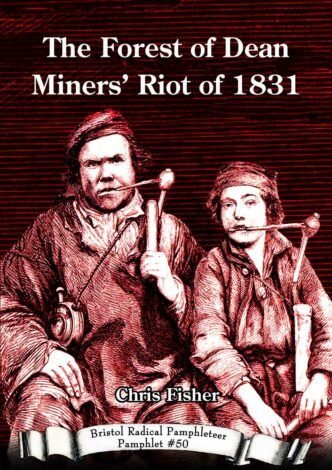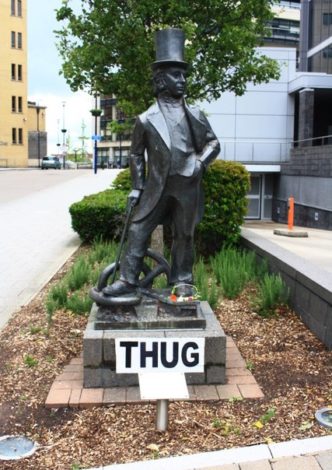The following article was compiled over 2022 in response to the exceptional use of riot charges against defendants in Bristol and Swansea in the spring of 2021. Introduction The introduction of the Police, Crime, Sentencing and Courts Bill (the Police Bill hereafter) in March 2021 was widely seen as an attempt by the Conservative government to clamp down on legitimate protest, particularly actions taken by climate protestors and the Black Lives Matter movement.[1] There was widespread […]
 Not A BRHG Event
Not A BRHG Event
Time for some seasonal solidarity! A fundraiser for Bristol's Kill The Bill prisoners, hosted by the Justice for Bristol Protesters campaign, with all proceeds going to the Bristol ABC prisoner support fund (online donations here). Featuring two live bands, dj, prisoners art & poems, films, and live art from the Bristol Mural Collective. Info, tickets, and band videos from Headfirst here. Or rock up and pay (cash if possible) on the door! Strange Brew is a multi-room DIY art space / music […]
The three days of reform-related rioting in late October 1831 in Bristol were the most serious urban disturbance in the nineteenth century. Major institutions such as the Mansion and Custom Houses, the Bishop's Palace, three prisons, and numerous houses in Queen Square were destroyed by rioting crowds. This talk, based on a recent reassessement of the historical evidence, considers the view of events from south of the river; from the portentous skirmish at St Paul's church in Southville a week […]
 Not A BRHG Event
Not A BRHG Event
BRHG is pleased to support the latest Bristol Radical Bookfair on Saturday 10th December, co-ordinated by Active Distro, and hosted at the Exchange, on Old Market, BS2 0EJ. All are welcome at this free event. As Active Distro state in the FB event and Headfirst Bristol listings: We're under attack from all sides, and we need radical ideas and community more than ever. At the bookfair, you'll find new and second hand titles, kids books, novels, calendars and more from radical publishers, zine […]
 Not A BRHG Event
Not A BRHG Event
The Swansea Radical Community Festival is a new initiative that takes place in central Swansea on Saturday 15th October, starting at 11am. The festival will include talks & workshops, stalls, films, a kids space, vegan food. From 7.30pm there will be an 'After-Party' with live music and DJ's. All are welcome. BRHG is delighted to be able to take along our book stall to the event. We will also be running a workshop, and look forwards to a day of discussions and debates. The BRHG workshop will […]
 Not A BRHG Event
Not A BRHG Event
Venue: Digby Memorial Church Hall, Digby Road, Sherborne DT9 3NL In early October 1831, the defeat of the Second Reform Bill in the House of Lords led to a wave of pro-reform public protests and disturbances across Britain and Ireland. Concurrently in Dorset, a microcosm of the national struggle over electoral reform was being fought out in a county by-election which posed Lord Ashley an anti-reformer against the pro-reform candidate William Ponsonby. In a close fought race, marked by widespread […]
 If you are Glad Colston’s Gone – support the Colston Topplers Defence Fund!
If you are Glad Colston’s Gone – support the Colston Topplers Defence Fund!
One year on from the fall of the Edward Colston statue from it's pedestal during the Black Lives Matter protest on 7 June 2020, there's been another media feeding frenzy focused on Bristol. The iconic statue toppling event continues to buzz around the world's newswires. But let's not forget that some participants in that event remain severely under pressure from the British state and its lackeys with a Crown Court trial due to start on 13 December 2021. We support the call to #DropTheCharges. We […]
Early this morning, on the first anniversary of the toppling of the slave-trader and former Tory MP Edward Colston from his plinth, the campaign coalition @GladColstonsGone issued the following statement and a press release. Amidst the chatter from policiticans, celebrities and media, it will likely be ignored, not least because it calls for the charges to be dropped against the four Colston Statue Defendants. But we reprint it here in full and unedited, because it's a collective work of […]
In June 1831, the free miners and commoners of the Forest of Dean rioted. This book considers the background to the uprising and the motives of the participants. Chris Fisher contends that the uprising was a clear expression of considerable and justifiable resentment towards the state and capitalists as they encroached on the customary rights of free miners. The Forest of Dean Miners’ Riot of 1831 places the events in the context of a social and economic transformation which favoured private […]
In the cabinet in M-Shed dedicated to the Reform Act uprising of 1831 are displayed two objects roughly tubular and of similar length that represent the extent of the uprising and the brutality with which it was put down. One is an arm bone that belonged to one of those who died when the Customs House in Queens Square was liberated and then torched. Peter MacDonald in his book ‘Hotheads and Heroes’ described the scene thus: just as the roof fell in a man toppled out of the end window and crashed […]
